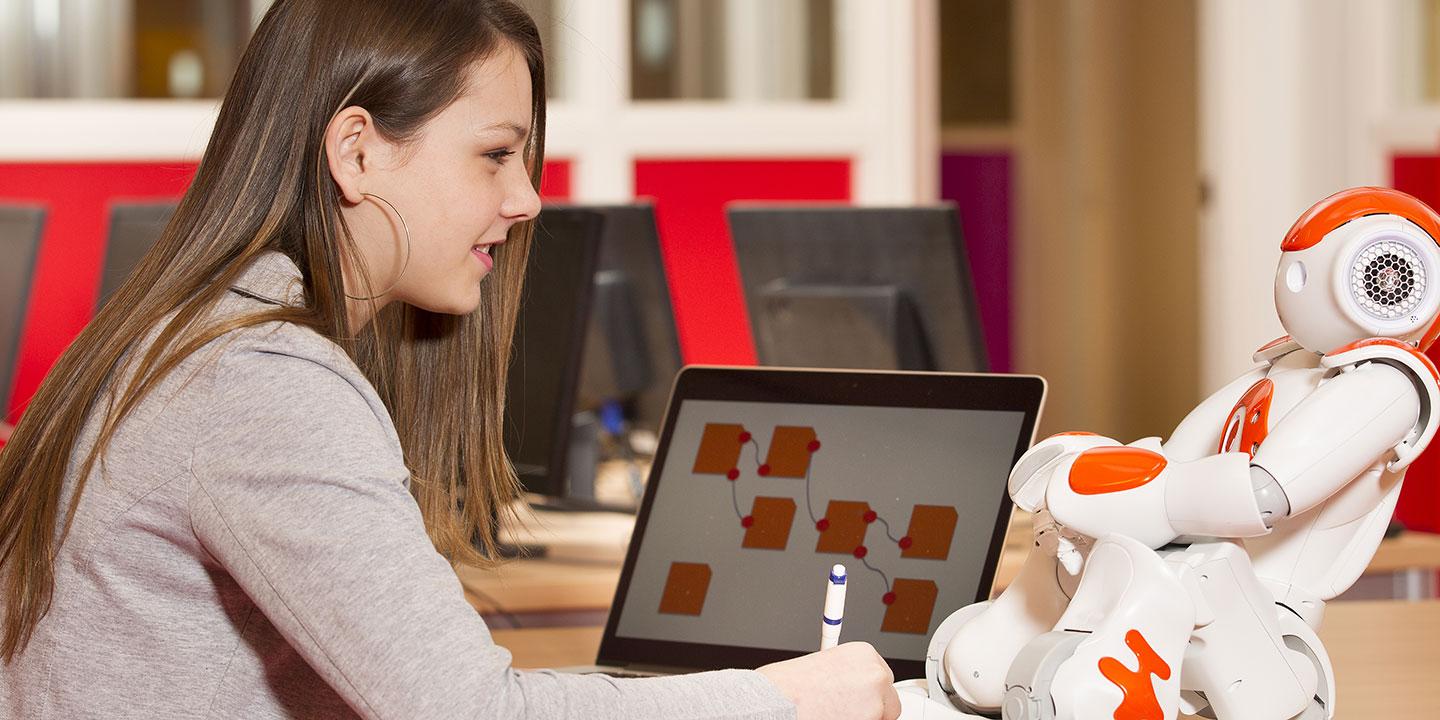Robots in school: trust, interactions and institutions
This interdisciplinary project analysed the use of robots in schools and the ways in which trust in this technology is established. To do so, it combined different levels of social analysis and, on this basis, revisited the notion of artificial intelligence.
Project description (completed research project)
How and to what end is trust established in robots at school? This was the central question of the project. Combining the analysis of filmed interactions between students, teachers and educational robots with the realisation of new pedagogical experiments, on the one hand, and the analysis of public education policies, on the other, this project provides an interdisciplinary answer.
The project examined how the stakeholders observed - students, teachers, policy-makers - build trust in robots at school, and explicated what can be learned from the dialogue between the interactional, experimential and institutional levels of analysis. This multi-level analysis showed the differences in understanding of the notion of artificial intelligence and the use of robots in schools, and their consequences in the field of practice.
Background
Like artificial intelligence, the use of robots for educational purposes, or educational robotics, has met with an ambivalent public reception. Private companies are promoting the virtues of these new intelligent agents, the media either amplify or question their promises, and public authorities either invest or delay. It's against this backdrop of tensions that this project looks at the practical and pedagogical establishment of trust in robots at school.
Aim
The project pursued four main goals:
- to examine how trust in robots is built in schools at three levels of analysis: interactional, experimental, and institutional;
- to implement new pedagogical experiments in schools using various educational robots;
- to analyse the institutional framework and the political discourse regarding educational robotics;
- to revisit the notion of artificial intelligence from a novel, interdisciplinary perspective.
Relevance
Based on analyses and experiments with robots in schools, the empirical results of the project contribute to educational policy advice, the development of new pedagogical experiments, and critical discussion of the notion of “artificial intelligence”. These results were obtained in collaboration with several institutions and professional partners, such as the HEPL (Haute école pédagogique à Lausanne) for the didactic component, the University of Lausanne for the critical component, and the DEF (Département de l'enseignement et de la formation professionnelle) of the canton of Vaud for the policy element.
Results
Three main messages:
- Analysing the situation: Address and answer the question of why and how “digital transformation” is taking place in the target area of education policy - local, regional, national. What is at stake? Who defines it? How does pedagogical expertise become an integral part of the political process? And how is “trust in technology” articulated in educational policy choices?
- Learning from past failures: There is no ready-made technical solution to digital education or pedagogy. Introducing PCs, iPads or educational robots into schools is not enough to create a digital education policy. It is essential that pedagogical objectives and content are clearly thought through and defined, and that teacher training is planned and implemented, as the reform in the canton of Vaud has shown - without which the digital education policy risks being a failure.
- Questioning the digital: As all information technologies do in every context of application, educational technologies are transforming pedagogy and social relations in education. There is a big difference between “learning for the digital” (practicing with technologies to acquire new skills) and “learning with the digital” (using technologies for learning in an existing field). In both cases, the expected advantages and disadvantages should never be taken for granted, but rather carefully tested and evaluated before implementation. Many of the educational technologies recently marketed are simply not fit or ready for use in schools.
Original title
Relocating Machine Intelligence: Trusting, Teaching, and Tinkering with Robots at School

